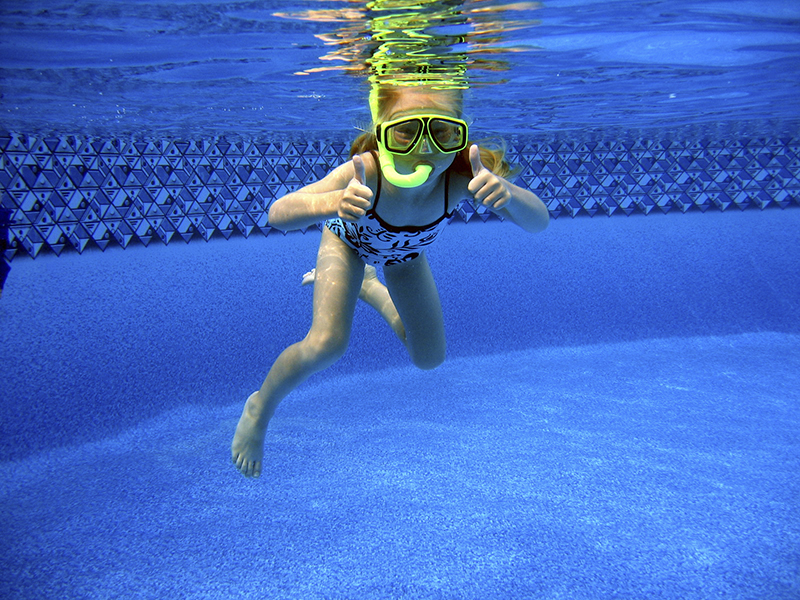
You’ve scheduled a large family picnic at your house. The night before, the outside temperature dropped to 50 degrees. The next day, you take the solar cover off the pool but the water temperature is only 77 degrees. Not too bad, you think! Everyone comes to the picnic, but you notice only the children are in the pool. Adults just don’t want to get in the colder water. Sound familiar?
It’s so much more fun when everyone is in the pool enjoying all the games and swimming. We have found the optimum pool water temperature is 82 to 84 degrees. At this temperature, you can walk right in and barely notice the temperature of the water. The way to maintain that warm water throughout the swimming season is to install a pool heater.
There are three styles of pool heaters available today:
- Natural gas or Propane gas heaters
- Electric heat pumps
- Solar heating panels.
There are pros and cons with each style; however, we certainly have seen an upswing in the amount of electric heat pumps that we are installing on new and existing swimming pools.
Here’s a closer look at each option.
GAS
Gas heaters burn either propane or natural gas in a heating chamber, and the flame heats the water as it flows through the copper heat exchanger. Gas heaters are more efficient today than in the past, but the efficiency rating is still only about 84%. You can heat a pool fairly quickly with a gas heater; however, due to the ups and downs of gas prices, it has almost become cost-prohibitive for some people to run their gas heater.
ELECTRIC
Electric heat pumps use nature’s heat to warm the water. It takes about 3-5 days, depending on outside temperatures, to warm the water from 55 degrees to 83 degrees. Once the desired temperature is obtained, it can be maintained with minimal running time. The initial investment of a heat pump is more expensive than a gas heater, but the overall operation cost is less. Electricity is required to run the fan motor and the scroll compressor. A special fluid in the unit is superheated by the outside ambient air temperature and compression of the fluid. This heat is then transferred to the pool water by way of the titanium heat exchanger. Yearly costs will vary depending on the pool size and the length of your swimming season, but normally it is around $200 to $400 per season.
SOLAR
Solar heating is the third method, but few people are currently using this method. Costs for the large number of panels that are required are rather high, and it only heats when the sun is out. Roof placement for the panels is usually the other prohibitive problem.
No matter which heating system is used, it is good common sense to use a solar cover to maintain the heat in the water. In fact, many localities require a solar cover if you have a heater.
Learn More
If you would like more information on getting the maximum use of your pool investment, and like swimming in warm water, call one of our stores or stop in to see the units first hand. Our service department can provide the installation in most instances, if desired. Call Pool Service for more information at 534-1837.